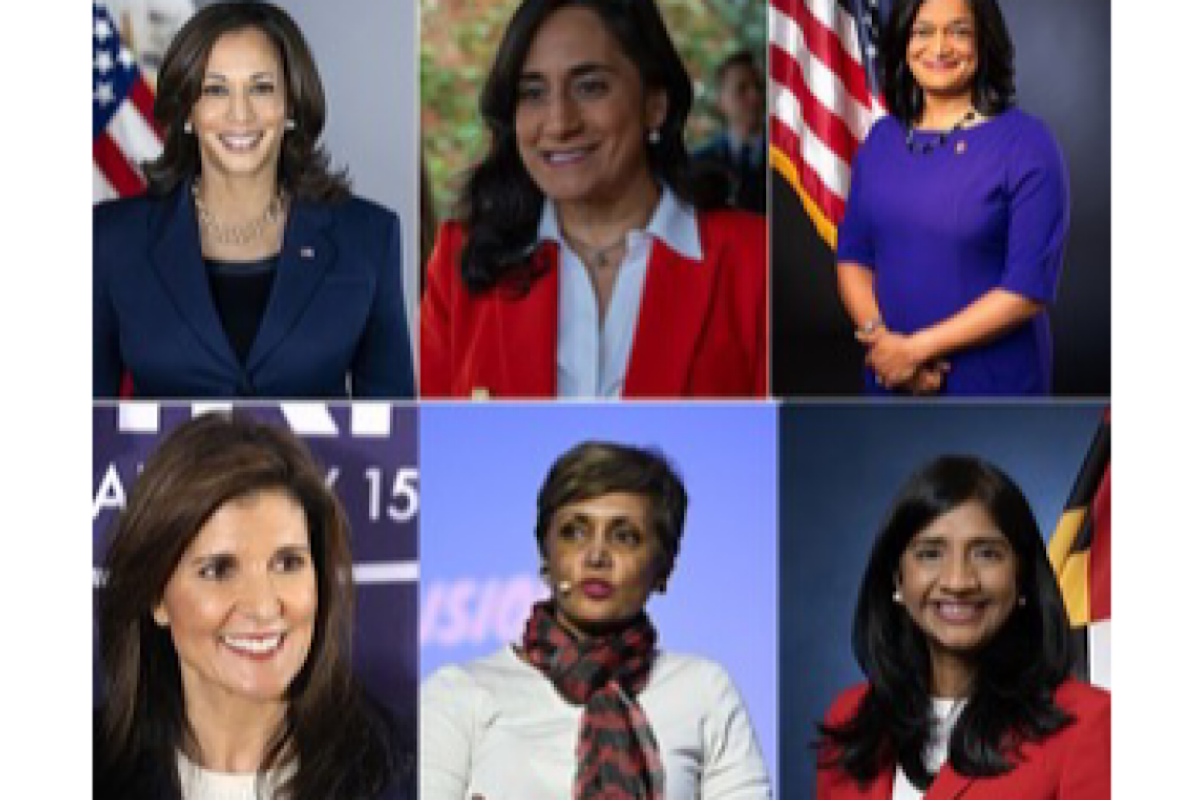Women serve as heads of state and government in only 31 countries with less than one in four serving as cabinet ministers, and just 26.5 per cent of them as MPs in a 21st-century world that speaks of gender equality.
Despite the not-so-impressive numbers, based on a 2023 UN study, women across the world have been emerging as a formidable force in political fora that has long been overpowered by men.
Advertisement
While in India, Ministers Nirmala Sitharaman, Smriti Irani, and many of their colleagues in the PM Narendra Modi government put in assiduous work to make governance more responsive to women’s interests and needs, their fellow Indian women beyond borders are not far behind.
In the US, Vice President Kamala Devi Harris — born to a Jamaican father and an Indian mother — is President Joe Biden’s running mate in this year’s crucial election and could well script history by becoming America’s first woman President, as well as the first of Indian descent.
Till two days back, two-time former South Carolina Governor Nikki Haley — born Nimrata Nikki Randhawa to Punjabi Sikh parents — was the last woman standing against Republican frontrunner Donald Trump in the 2024 race to the White House. She was also the US Ambassador to the UN under then-President Trump.
Chennai-born Pramila Jayapal is among the five Indian-American lawmakers in the US Congress and represents the 7th Congressional District of Washington. Last year, her sister Susheela Jayapal, launched her congressional bid from the state of Oregon.
Assemblywoman Jenifer Rajkumar, the first Hindu American elected to New York State Office, won the Diwali school holiday in just one legislative session, winning the hearts of the South Asian community in the state.
Last year, Andhra Pradesh-born Aruna Miller scripted history by becoming the first Indian-American politician to be sworn in as the Lieutenant Governor in the state of Maryland.
In Australia, Labour MP Zaneta Mascarenhas became the first person of Goan origin to be elected to the country’s lower house of representatives in 2022 from Swan.
In Australia’s closest neighbour to the east, Priyanca Radhakrishnan became the first person of Indian roots to be named minister for Diversity, Inclusion and Ethnic Communities in New Zealand.
Her great-grandfather, Dr C.R. Krishna Pillai, had reportedly been a left-wing leader with the Communist Party and played a key role in Kerala politics.
In January 2021, Radhakrishnan, who is a Labour MP right now, was conferred a Pravasi Bharatiya Samman award for public service.
Indo-Canadian Anita Anand, promoted as the President of the Treasury Board in a last year Cabinet reshuffle, was the former Defence Minister of Canada and also served as the Minister of Public Services and Procurement in the past.
Born in 1967 in Nova Scotia to a Punjabi mother and a Tamil father, both physicians, Anita — having worked as a scholar, lawyer and researcher — was first elected as the MP for Oakville in 2019.
Reacting to Justin Trudeau’s allegations of an Indian hand in the murder of Khalistani activist Hardeep Singh Nijjar, Anita said it was a “very difficult time” to hear the Prime Minister make the remarks, especially for families who come from India.
“I am thinking about my parents, for example, and I think that sentiment is shared by South Asians and families who come from India, regardless of religion,” Anita said, adding that it is “time to let the legal process continue as it must.”
Born to Sikh parents from India, Jyoti Gondek was sworn in as the 37th mayor of Calgary, a city in Canada’s Alberta province, becoming the first woman to be elected to the role in 2021.
In the island nation of Singapore, Indranee Rajah — born to a Tamil father and a Chinese Singaporean mother, entered politics in 2001 and was appointed a minister in the Prime Minister’s office in 2018. She has been serving as Minister in the Prime Minister’s Office and Second Minister for Finance since 2018 in the city-state.











